Genre: Drama
Premise: (from Black List) Peter, a seventeen-year-old painter, lives with his controlling mother in a lonely house in the wilderness. When he meets a mysterious stranger, he begins to question the reality he was raised to believe, gathers the courage to leave his mother, and unveils the sinister truth behind his upbringing.
About: This script finished with 8 votes on last year’s Black List. The writer has written several short films, which makes this script their big breakthrough.
Writer: Yumiko Fuiwara
Details: 85 pages
 Millie Bobby Brown for our gender neutral mystery forest figure?
Millie Bobby Brown for our gender neutral mystery forest figure?
We’re going from one of the biggest blockbusters of all time to a script you might see Kogonada direct for A24. That’s why I love Scriptshadow, baby. You never know what you’re going to get!
17 year old painter Peter Mori has lived his entire life with his mother, Felicia, out in the middle of the forest. All Peter does every day is paint. And he’s really good at it, even if his paintings are excessively disturbing. Peter focuses on death and fear and evil in his paintings, with a particular love for fire.
Every few weeks, a 70 year old man named Mark shows up to the cabin and collects Peter’s paintings. Mark appears to be some rich dignified aristocrat of sorts. Which is impressive when you consider that society is no more. At least that’s what we’re told.
Things are starting to change for Peter, though. He’s going to be 18 soon, and the implication is that he will make his way into society once he’s a man. This has injected a healthy dose of curiosity in Peter, most of which is aimed towards a big metal door in their home that Peter is not allowed into. Talk about a mystery box.
In addition to this, Peter meets a strange character out in the forest one day. This is the description of the character in the script: “A TEENAGER – about Peter’s age. Gender-neutral. Skinny, a few inches taller than Peter. They wear an oversized hoodie, black jeans and leather boots. They have wild, curly hair that ends just below their ears, and falls over their large, searching eyes.”
Our gender-neutral “teen person” tells Peter that the real world isn’t nearly as bad as his mother has told him. And that Peter should come with “them” and find out for himself. Peter hems and haws over the course of a few meetings with this mystery figure, but finally agrees to run off with them.
A day before Peter plans on sneaking off, he can’t help but be drawn to the steel door that has stood between him and the mystery room his whole life. So he goes inside when his mom is out and finds out the shocking truth about his mother, and by association, him. (Major spoiler) It turns out Peter’s mom was a famous artist in the real world and that Peter’s entire life has been an art exhibit of hers, which she plans to show the world on his 18th birthday. Naturally, Peter decides to get the f$#k out of there. But will the real world be any better than his mother’s fake world?
It’s important to remember that not everything can be ideal screenplay or movie subject matter.
There are certain genres that fit perfectly into each. An action movie, like James Bond, is perfect for film. It celebrates everything the medium is good at. A lean thriller, a la Taken, is perfect for spec screenwriting. The narrative moves quickly and the writing is always sparse and, therefore, easy to read.
But we still need other stories or else the audience gets bored. And today’s script is definitely “other.” I’ve read plenty of scripts about people living in isolated areas. Even scripts about parents lying to their kids’ in these scenarios, keeping the truth of the real world from them.
But I’ve never seen one that evolves like this. And I’m still trying to wrap my head around the big reveal. Cause in scripts like this, where the entire story is screaming, “JUST WAIT UNTIL THE END! EVERYTHING WILL BE REVEALED AT THE END! THE BIG END IS COMING AND IT’S GOING TO BE A DOOZY! JUST YOU WAIT AND SEE WHAT THAT ENDING REVEAL IS!” – the reader will not accept anything other than a perfect reveal.
An argument can be made that everything that needs to be set up in this story could’ve been done so in the first 10 pages. Then the next 60 pages are the story spinning its wheels, getting you all charged for the final reveal, and we get that reveal with 15 pages to go.
While I give the writer credit for a reveal I’ve never seen before, I’m not convinced its worth a 70 page tease. The script is a prime example of a “waiting around” narrative. For those who don’t know what this is, it’s when the characters don’t have a clear goal and are therefore passive. We’re essentially “waiting around” for things to happen *to* our hero as opposed to the hero going out and *making* things happen for himself.
These scripts are not impossible to make work. But they are definitely challenging. And if you’re someone who doesn’t understand the unique challenges of a waiting around narrative, it’s unlikely you’ll pull them off. Because even writers who understand the unique challenges of this template have a hard time making them work.
With that said, mystery is a primary interest-driver in these stories. And the writer does a good job setting up several mysteries. Who is our gender-neutral forest dweller? What’s behind the magical steel door? What is Mark doing with these paintings Peter paints? And just what’s going on in the outside world in general?
Those were just enough mysteries to keep me interested in finding out what happened. I wouldn’t say I was invested, though. And this is one of the issues you run into whenever you write a story with so many mysteries. It’s hard to delve into any character development because every character is a lie. You can’t tell us what’s really going on with them.
We do know, however, that they’re taking advantage of Peter. And that makes him sympathetic enough for you to care what happens to him (readers will always root for characters who are being taken advantage of).
The problem was that you just never had enough gears pushing the narrative along. And so the story felt like a car with only a couple of gears. That led to characters sitting around and being forced to say things that didn’t do much for the story. “Thing is, when I paint I can exist somewhere else… Like, outside of space, and maybe outside of time, even. I’m not here… I’m in a different realm.” This is essentially gobbledy-gook. You don’t want artist characters giving detailed thoughts about their process. It’s never as interesting as the art itself. Just show it through the art. And you don’t want characters offering up unprompted thoughts as a rule of thumb. It comes off as pretentious 99% of the time.
The Fire Outside reminded me of many of the Black List scripts you read today. You can see some talent on the page. But it’s too raw. There’s not enough technique to keep the story compelling from beginning to end.
[ ] What the hell did I just read?
[x] wasn’t for me
[ ] worth the read
[ ] impressive
[ ] genius
What I learned: I’ve pointed this out before. But never have somebody physically push another character down, then have the fallen character bump their head, and either pass out or die. That doesn’t happen in real life. So it shouldn’t happen in the movies.
What I learned 2:
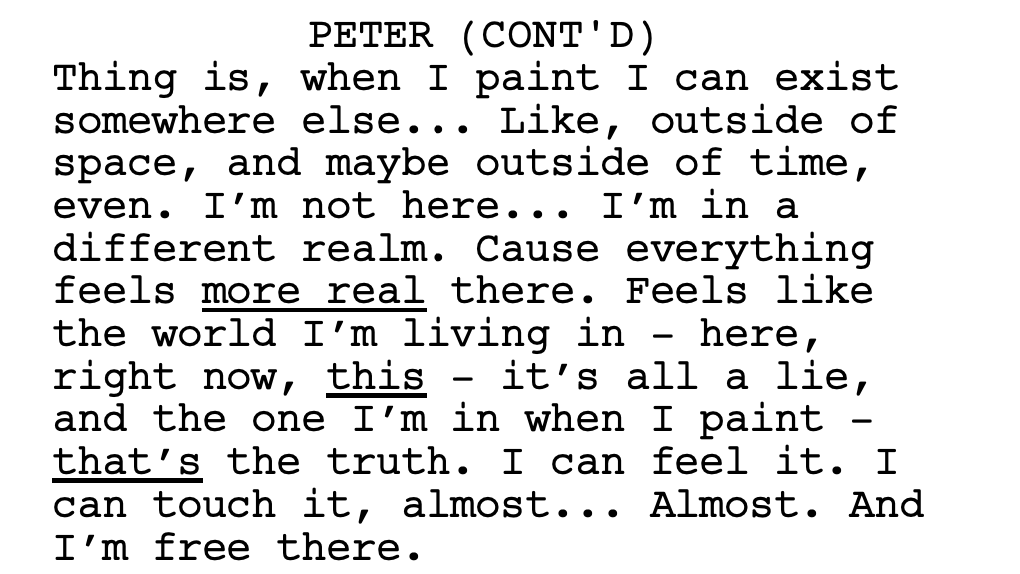
When writing monologues, or any dialogue really, don’t underline a bunch of words for emphasis. First off, it looks like you’re trying to direct the actor’s performances, which actors hate. But it also conveys that you don’t have confidence in what your character is saying. If you have to underline a bunch of words to REALLY EMPHASIZE those moments, it means the dialogue isn’t doing the job on its own. I don’t mind emphasizing a word once every 25 pages or so. Assuming you really need that emphasis to make your point. But don’t don’t do it multiple times in a monologue. Your monologue should speak for itself. And the truth is, it’s highly unlikely those words needed to be emphasized.
The less heralded chipmunk team is back with a tree-climbing vengeance!
Genre: Animation/Family
Premise: Years after the acting duo have split up, Chip and Dale are given a new mission when a friend of theirs mysterious disappears.
About: A lot of people had no idea this movie was even coming down the pipe so imagine their surprise when it not only popped up on Disney Plus, but quickly became the number one movie on the service! Writers Dan Gregor and Doug Mand also wrote Disney’s “Magic Camp” and “Doolittle.” The film is being heralded for its unending number of “holy schnikees” cameos.
Writers: Dan Gregor and Doug Mand
Details: 1 hour and 47 minutes
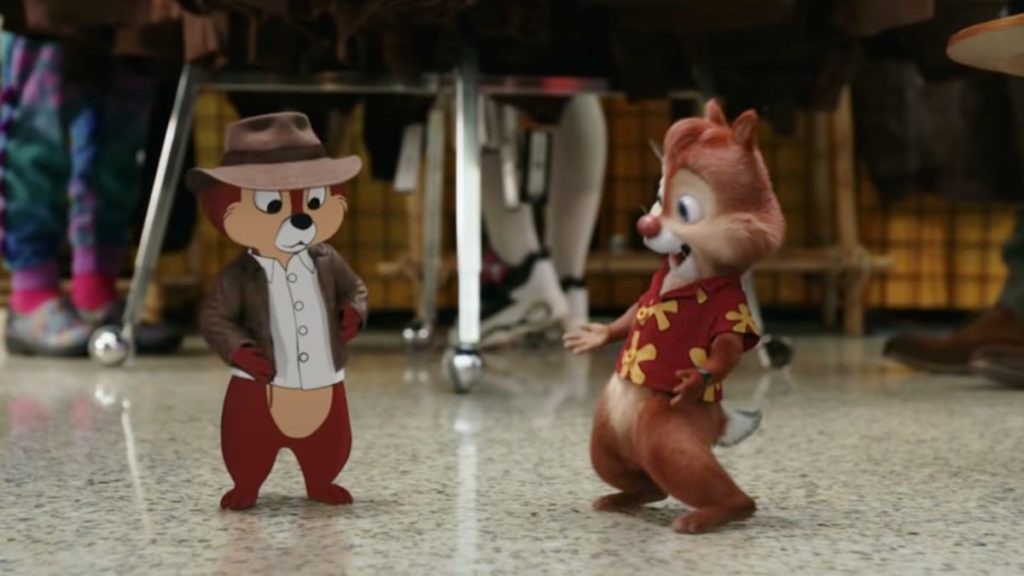
When I heard there was going to be a new Chip n Dale movie I was a little skeptical, with emphasis on the “little” (get it? Cause they’re chipmunks). Those 1980s cartoons with that wacky mini-mammal combo managed to cook up a smorgasbord of shenanigans each and every weekend to the point where I didn’t think anything could top it.
I still remember my favorite tale of them all, season 3, episode 19, “Chips Ahoy?” where Chip n Dale wake up in a cheese factory with amnesia and have to figure out how they got there then fight their way out against an army of rats. Unofficially, that storyline is what inspired Robert Ludlum to write The Bourne Identity.
Now, as we all know, Chip n Dale was famously canceled by controversial TV executive Charles K. Figueroa after he became head of ABC and, in a power move, got rid of all the Saturday morning cartoons on the channel. The creators were so angry about the cancellation that they funded their own episode, titled, “Two Chips and A Miss,” airing it on public TV, which became an instant classic, winning the Clemson Award for best animated episode of television.
While we’re talking about great episodes, how can we not mention…
OKAY!
Okay okay okay.
Enough.
Sorry. It was too tempting to mess with you guys. I had to do it. I know why you’re here. You’re here for…
MOVIE REVIEW – TOP GUN: MAVERICK!!!
Genre: Action/Drama
Premise: Legendary pilot Pete Mitchell is tasked with preparing a new team of Top Gun recruits to pull off a near-impossible mission, a team that includes the son of the man he killed, Goose.
About: They say the movie star is dead. Then how is it that a movie star whose latest movie is built solely around his stardom just made 150 million dollars at the box office, more than double Tom Cruise’s previous movie high? This seems even crazier when you consider that a year ago, Paramount didn’t know what to do with Top Gun: Maverick, as they’d been sitting on a completed film for ages, everyone around them sending their films straight to streaming, and people were questioning whether the theatrical experience was done for anybody outside of Marvel. But Tom Cruise stayed the course, convincing Paramount that this thing was meant to be played in theaters, and boy was he right. This has to be one of the most shocking box office takes in history.
Writers: Story by Peter Craig & Justin Marks. Screenplay by Ehren Kruger, Eric Warren Singer, and Christopher McQuarrie. Characters by Jim Cash and Jack Epps Jr.
Details: 130 minutes

Quick question for the readers. Is this the best long-absence sequel of all time? Usually, these long-absence sequels crash and burn in a fiery blaze of non-glory. Matrix Revolutions, Terminator Dark Fate, Dumb and Dumber Too, Independence Day: Resurgence, T2: Trainspotting, Bad Boys For Life.
Somehow, some way, Top Gun Maverick discovered the formula for coming up with a long-absence sequel story that needed to be told. Remember how I was talking about that in the newsletter? From the second Top Gun Maverick started, with Pete continuing to bump up against his never-ending flaw – his recklessness – you felt like this movie mattered.
With that said, I do think Top Gun Maverick missed a couple of opportunities to elevate this to genius (yes, I said it) status. But even with those near-misses, it’s still the blockbuster movie of the year, leaving all these superhero flicks in the dust.
Full disclosure. The first Top Gun did nothing for me at the time. What I remember about it was the roundhouse high-five, which I practiced way too much with my friends. Then the line, “I feel the need. The need for speed.” I loved saying that line. But other than those two things, Top Gun went right through one eyeball and out the other. I barely remembered anything about it.
So I watched it again in preparation for Top Gun: Maverick and I was shocked by how invested I was. There’s this weird thing with movies where they either work or they don’t work. And you know it within the first five minutes. It just feels like all cylinders are firing. Even movies you don’t personally enjoy, you know if they still “work” as a movie.
The original Top Gun had that feeling. It was so sure of itself. And that made us sure of it. When Goose dies? I was freaking emotional, man. I was like, “whoa, did I not have feelings as a kid? How was I not crying up an ocean when this happened?”
In many ways, Top Gun is the perfect summer movie. It celebrates everything we want out of a summer. We have a girlfriend who lives in a house by the ocean. We play shirtless beach volleyball every day. We drunkenly belt out songs with our buddies at the bar. And wherever we go, we have a light coat of sweat covering us. That movie felt like summer is supposed to feel.
Top Gun: Maverick understands this as well. Which is why it’s debuting on the opening weekend of summer.
If you haven’t seen it, Pete “Maverick” Mitchell test-flies super advanced planes for the military but is told that these programs are shutting down as the military is moving towards drone technology. Luckily, Maverick is called back to the Top Gun flight school to train a bunch of new recruits. Top Gun flight school, by the way, is the school that trains the best of the best.
One of the new recruits is “Rooster,” which is Goose’s son. Naturally, there’s a lot of friction between Maverick and Rooster, as many believe Maverick’s reckless flying style is what led to Goose’s death.
The school turns out to be more important than your average flight school as there’s a uranium rich target from an enemy (they don’t tell us who the enemy is but we assume it’s the Russians) that needs to be taken out within three weeks. Maverick will be tasked with training the students to pull this mission off. Meanwhile, he falls for an old flame who works at a local bar.
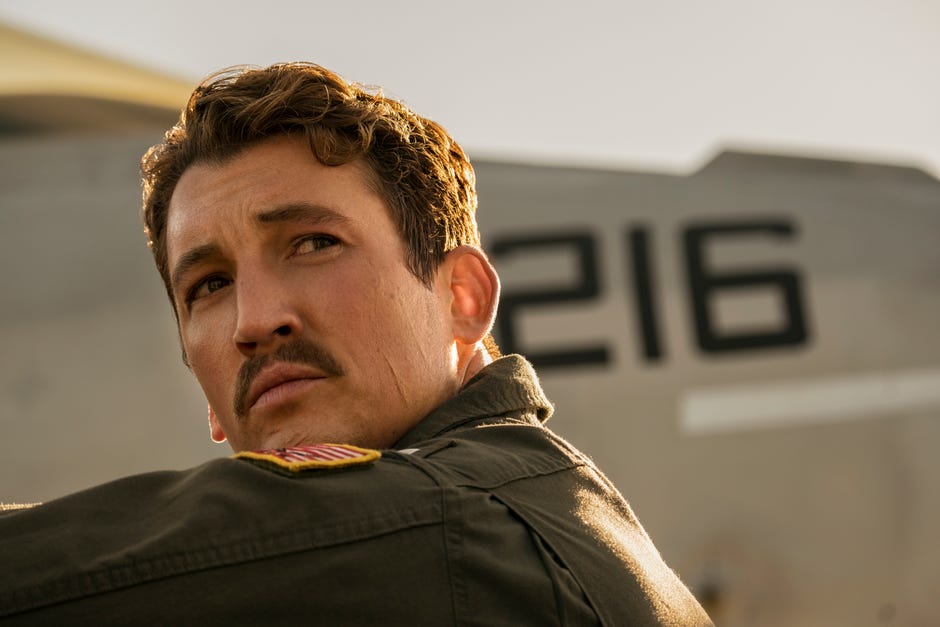
What I loved about this movie is that it understood why the first movie was so successful and embraced it. You have to understand that Top Gun was the pinnacle of the Bruckheimer-Simpson era, where movie producers opened a magazine, looked at the pictures, found something that looked cool and built a story around it. It was a very simplistic way to approach movies, but the good thing about it was that it kept everything simple.
A movie about a best pilot competition at the top flight school is as simple as it gets.
One of the reasons blockbusters feel all over the place these days is because they’ve overcomplicated the storytelling to the point where there’s a million things going on at once. Look no further than Dr. Strange and the Fifteen Other People movie that came out last month. It’s a big cumbersome forest of confusion. I mean do you even remember what the plot was? I don’t.
Top Gun Maverick understands what that does to a movie. It wants you focused instead.
One of the ways they do this is to give us the mission goal right at the start of the film. “We’re going to try and destroy THIS target. And here’s why it’s going to be hard. And that’s why we need to train. Now we’re going to go train.” I actually thought the sequel did it better than the original. If you could nitpick the original, one of the things you’d point out is the low stakes. What happened at the school never felt that important.
The original film rallies at the end by adding a big climax that *does* matter. But we only learn about the mission at the end. Here, we’re told about the big thing they have to do right from the start. So now the training actually seems necessary.
Another way they did a great job was reminding us over and over again how difficult this mission was going to be. They showed us through computer animation just how impossible the job was. This is a great tip for every screenwriter. Tell the reader how impossible it is to succeed at the goal. Really lean into that. Because you want the reader to think, “Oh my God. How are they going to pull this off???”
There’s two major steps in the mission and they even call these steps, “Miracle 1” and “Miracle 2.” So we’re thinking in our heads, “They have to pull off TWO miracles??? Oh my God they’re never going to be able to do that!” Which of course makes us want to watch to see if they can.
I can’t emphasize enough how great of a job the writers (and the director) did at clearly explaining every point of the mission. The reason you do this is so the audience knows exactly what’s going on, which means they’re more engaged.
Once the parameters are clear, you can do things like emphasize how “impossible” it will be to pull the plane up over the enormous slope at the end of the bombing. That way, we’re all anticipating that moment. We’re thinking, oh man, even if they hit their target they still have to shoot up the side of this mountain with no room. That creates anticipation and suspense.
When you’re a newbie writer, you assume the reader and viewer already know those things. So you don’t bother explaining them. Or you barely explain them. Clarity about what your characters have to do is essential to the reader understanding what’s happening. So whether it’s a fighter pilot mission or a bank heist, make sure we know what the characters have to do to achieve their impossible goal.
Another thing I liked was that Maverick’s flaw was the same. Usually sequels suffer because the hero has already overcome their main flaw in the first film. Maverick’s flaw is his recklessness. It’s what got his best friend, Goose, killed. Watching him battle that – does he take it easy or does he continue to push the limits – is what makes his character fun. Top Gun is, arguably, a 2-D movie. So anything you can do to make it a little deeper, helps. And I think Maverick’s flaw of recklessness is what helps this movie feel deeper than it deserves to feel. Which is likely why it resonates with people.
But it’s such a great flaw to play with, regardless, because it’s so visual. Some flaws are hard to show. Like, if your character’s flaw is that he’s an idealist, that doesn’t transfer very well to film. If you have a really talky movie with people sharing ideologies a lot, it could work. But recklessness is this big flashy way to explore a flaw and, for that reason, I’m glad they kept it. We see it right at the beginning – to re-establish that he still has this flaw – when he’s pushing a test plane past its recommended speed (Mach 10), even if it means the plane falling apart.
Let me preface what I’m going to say next with, I think this is a great film. You can nitpick anything. So I don’t have any overwhelming feelings about these missed opportunities. But I do think they could’ve added something to the movie.
First, why didn’t they add a storyline with drones? They tell us right from the start that pilots are going the way of the dinosaur so you think that’s what’s coming – a drone obstacle. But we don’t see a single drone in the movie. I think it would’ve been great if the military was considering going with a drone strike on this target and the flight school was trying to prove that it needed to be a manned mission instead.
I mean how awesome would it have been for Tom Cruise to go up against the newest top level drone being flown by some video game type stud who thinks these old planes are jokes? Seeing Cruise outmaneuver and trick the drone to convince the military to go with them over the drone team would’ve been awesome, in my opinion.
Also, I thought they should’ve done what Cobra Kai did and made all the student pilots a bunch of Gen Z pu$$ies. And Tom Cruise had to knock some old school toughness into them. It would’ve not only been more fun but it would’ve added some personality to the students who were overshadowed heavily by the star power of Cruise. Just a thought.
But other than that, I thought this was the perfect summer movie. It delivered on every level. It actually used its nostalgia for dramatic effect rather than audience applause. It understood exactly what it needed to be and, to use the perfect analogy, it hit the target dead on.
I loved it!
[ ] What the hell did I just watch?
[ ] wasn’t for me
[ ] worth the price of admission
[x] impressive
[ ] genius
What I learned: An old urgency trick is to give the goal an impossible time frame (in this case, they have 3 weeks to train for an impossible mission), then, in the middle of the story, CUT THE TIME FRAME DOWN EVEN MORE. So, at the midpoint, they think they still have two weeks. But then the military receives intelligence that the uranium is arriving sooner than anticipated. Which means they’ll have to fly the mission in one week.
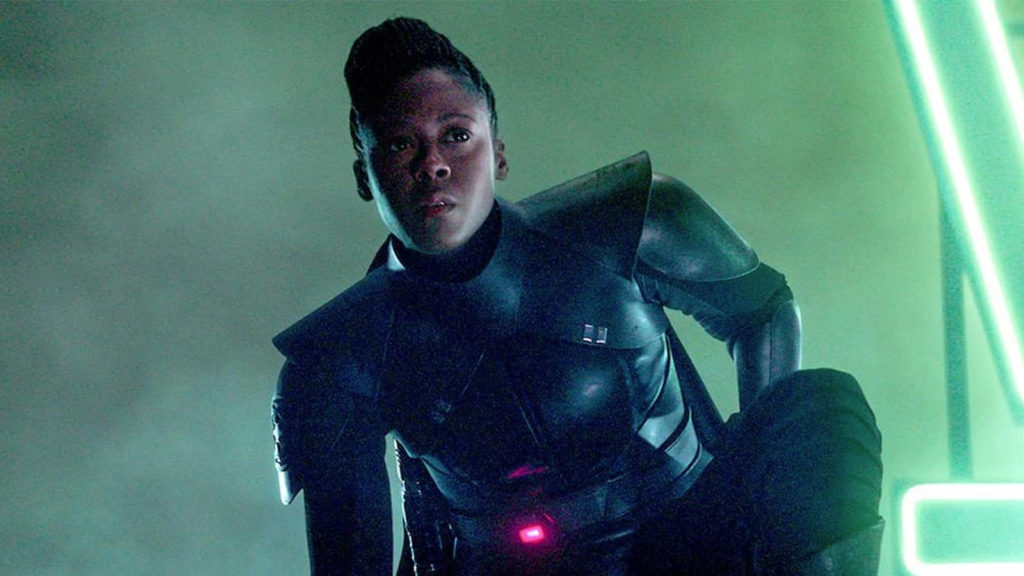
I’ve got a 2500 word Obi-Wan Kenobi review. Yes, I talk all about Baby Leia, Reva, eopies, and the dangers of Dave Filoni having too much creative control over the Star Wars universe. I also dive into the biggest trailer release month of the decade, breaking down Thor, Gray Man, Mission Impossible, She-Hulk, Andor, and more. I also take a trip into the past to see why A New Hope is so much better than the Star Wars content being released today. I come up with some amazing revelations that surprised even me. We’re talking stuff that would turbo-charge the screenwriting world if writers went back to doing it.
If you would like to read my newsletter, e-mail me at carsonreeves1@gmail.com and I’ll send it your way.
P.S. There is no post Monday because it’s Memorial Day here in the U.S. (a big holiday). But I’ll have a Top Gun Maverick review for you on Tuesday. See ya then!
A quick note: I will be reviewing the “Kenobi” pilot in this month’s newsletter, which is coming out Saturday. So if you’re not already signed up, e-mail me at carsonreeves1@gmail.com with the subject line, “NEWSLETTER.” :)
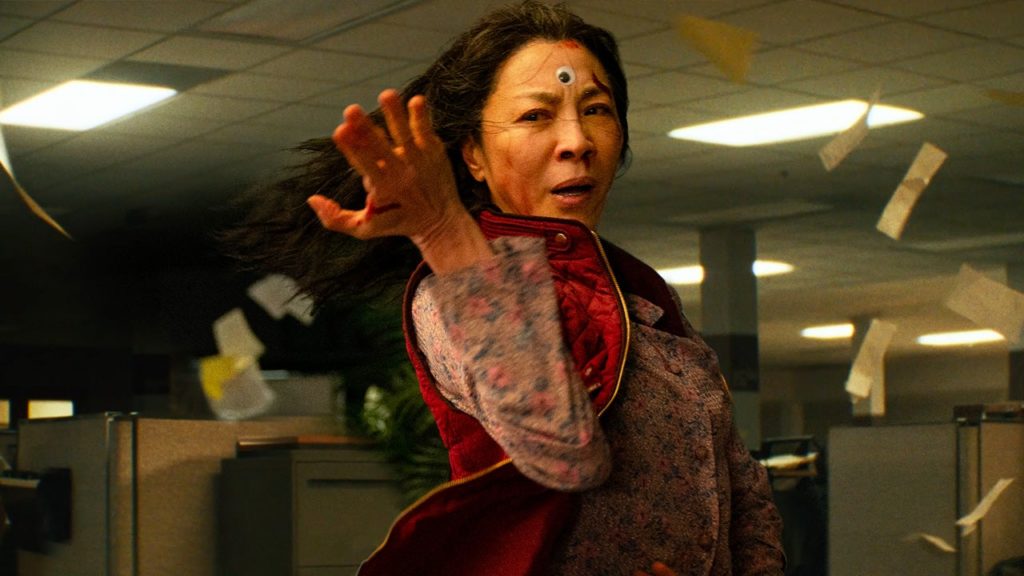
You know those lightbulb moments you’ve had that literally changed the way you looked at life? Like when you realized you could go to the bathroom without telling your parents? Or that instead of having to eat at the Commons in college, you could order McDonald’s and pizza every night?
Okay, maybe those are less major revelations than they are my issues with authority. However, when it comes to screenwriting, I’ve had some MAJOR earth-shattering realizations over the years, lightbulb moments that spun my prior views about the craft on their head and totally reinvented the way I approached screenwriting.
Today I thought I’d share these with you so that you could have these epiphanies earlier than I did, and therefore improve at a faster pace. Granted, we all look at the craft differently and are inspired by different things. But hopefully these revelations will help out in some way.
It’s not about you, it’s about the reader – I shudder at the thought of my early screenplays as I was so self-indulgent, I bordered on narcissistic. I still remember handing off a 135 page screenplay to a friend who was a reader at a big production company and them saying to me “Are you sure you don’t want to cut this down? 135 pages is a lot.” I mentally rolled my eyes at my friend due to what a stupid statement this was. A good story doesn’t have a page limit, I wanted to say to her. I was shocked when nothing happened with the script and figured that my friend’s pre-conceived notion of how long a script had to be made her downplay it to her boss.
Of course, reading the script years later resulted in the maximum amount of second-hand embarrassment a person is allowed to endure. Soooo much could’ve been cut from that script. But because I wanted to include what *I* wanted to include in the story and because everything *I* wrote had to be genius, there’d been zero editing. The script, I realized, was all about me. As were all the scripts I’d written up to that point.
Around this time I started to read a lot of professional screenplays and noticed just how easy they were to read (The Hangover was a particular favorite). It hit me that I’d been doing it all wrong. I was writing for me, never once thinking about what the experience was for the reader. Ultimately, it’s about making them happy. So I completely changed the way I wrote. 135 page scripts became 110 page scripts. I began writing simpler easier-to-digest sentences (4th grade level instead of going to a thesaurus every tenth word). 4-5 line paragraphs became 2-3 line paragraphs. Crazy weird hard-to-follow artsy sequences were jettisoned entirely. Everything became geared towards giving the reader the most enjoyable experience possible. Yes, you have to be into what you’re writing. But ultimately you’re writing your script for others to enjoy, not yourself. So approach your scriptwriting accordingly.
Outlining is actually a good thing. Oh wait, outlining is actually a bad thing – Like most writers who get into screenwriting, I considered outlining the antithesis of creativity. If you planned what you were going to write ahead of time, you were purposefully stifling your moment-to-moment ability to seize upon inspiration. However, after writing a dozen or so screenplays without an outline, I began to notice I was spending an inordinate amount of time rewriting them. One day I decided that I needed to be more productive with my writing time and looked into what was causing me to rewrite so much. I realized that the bulk of my rewriting was focused on correcting my structure, which was all over the place. Why was it all over the place? Because I’d been taking my story whatever random direction I wanted to in the moment.
Outlining, I realized, corrected this problem. What you have to remember is that screenwriting is the most mathematical of the writing practices outside of maybe poetry. Every page is a minute of screen time. And most movies are between 100-120 minutes. So your length is already set. Therefore, it makes sense that you’d want to divide your script into the most dramatically powerful set of sequences to get the most out of it. Planning where everything goes isn’t anti-creative. It’s putting the pillars of your story in place so that it’s easy to build a story on top of them. There are about 45 scenes in a script. Your first act should have 25% of those scenes, the second act 50%, and the third act 25%. Figure out as much as you can about what goes on in each of those acts and your script is going to be more focused and more purposeful.
But wait! Years later, after following this strategy religiously, I realized it’d created a new problem. Now, my scripts were feeling too predictable. They were structured well and weren’t taking as long to write. But the story beats were all landing in the same spots that all story beats land, giving my scripts the distinctive feeling of “I’ve seen this movie already.” This was because, in my determination to become a structural superstar, I had eliminated all spontaneity. I’d forbidden the act of coming up with an idea on the spot and changing direction, since it went against my outline. Also, if I changed a major part of my outline, it would mean going back and changing the rest of the outline with it.
What I ultimately learned was that you need a balance of both. You need to outline ahead of time. But you also need to give yourself permission to go off on story tangents during the writing process, even if it means re-thinking your story. The act of writing a screenplay is a process of discovery. You will discover new things along the way. If those ideas are notably better than the ideas you had in your outline, by all means incorporate them.
Situation-based writing – In the past, I looked at screenplays as a series of scenes that are stacked together to tell a larger story. Not every one of these scenes needed to be individually entertaining as long as they worked with the other scenes to tell that story. Situation-based writing changed that. It made me realize that each scene could become a story all its own, so that not only was it a part of a larger whole, but was entertaining all by itself. And the concept is simple. Instead of just writing characters moving through your universe, bridges that connect the previous scene with the following one, create a SITUATION within the scene itself that makes it its own little mini-story.
Let me give you an example. Let’s say you want to write a work scene for your protagonist between him and his boss. Technically, you could write anything you wanted. You could have the boss remind your hero of an important presentation he has later. You could write a scene to establish that your hero kisses up to his boss whenever he can, in the hopes of getting a promotion at some point. You can write a scene with your hero and several co-workers talking to their boss after a meeting. None of these scenes would be bad, per se, if you wrote them competently. But none of them are situations. Situations have goals, stakes, and some sort of familiar container that audiences understand the rules of.
So, for example, your hero could have a meeting with his boss where he plans to ask him for a raise. That’s a situation. It’s an identifiable act with clear rules attached to it. Somebody wants something. We’d make sure to attach some stakes to it (it’s crucial that he get this raise). That’s going to be a way better scene than the other three scenes I mentioned specifically because of the compelling situation you’ve set up. In Coda, two high school kids who like each other do homework together in one of their bedroom’s for the first time. That’s a situation. It’s a non-situation if they just talk to each other after class. There’s no “container” to that scenario.
Speaking of high school, a teenager taking their driver’s test. That’s a situation. A road rage confrontation. That’s a situation. When Terry Rossio talks about this, the example he gives is, don’t have your married couple arguing back home, have them arguing on the side of the road while having to change a tire. The changing of the tire is the situation. Situations create a framework around the scene that makes it feel like a miniature movie. You’re not going to be able to do this in every scene. But try to do it in as many as possible.
The second act is the movie – At one point in my screenwriting journey, I was under the assumption that the first act was the movie. Because the first act was where you introduced your concept, which is the whole reason you wrote the movie. Take War of the Worlds, for example. The reason you get excited about writing that movie is what happens ten minutes into it, when these giant tripod aliens appear and start vaporizing everyone. But after writing a bunch of screenplays incorporating that approach, I realized that everything went to crap as soon as my first act was over. I’d introduced this really cool hook but I still had 90 pages to go. What was the point of those additional pages if the best stuff had already happened?
That’s when I internalized that scripts weren’t about introducing big fancy concepts then spinning your wheels for 60 pages until you got to the climax. What happens in the second act was actually the thing that connects with the audience the most. What I ultimately realized is that a screenplay is about a character who’s experiencing intense inner turmoil which is preventing them from finding happiness. The second act is about challenging that conflict to the point where they need to face it head on.
Take Everything Everywhere All at Once. The second act is about this unhappy woman who’s given up on both her life and her family being forced to cooperate with them in order to defeat a bigger evil. Sure, the opening act where we learn she can recruit powers from other universes is cool. But the meat of the story is her trying to connect with her other family members, and that’s 100% explored in the second act. Obviously, you’re throwing plot obstacles at your characters in the second act as well. But it’s primarily about your character being challenged internally. This was a major MAJOR revelation for me because it finally got me to understand what to do in my second act. Before that, I just tried to come up with enough non-boring scenes to get to the 3rd act.
Scripts are not about dialogue – When I started writing, I was heavily influenced, like a lot of people, by Tarantino. And what was Tarantino known for? His dialogue. So all of my early scripts were characters chatting, and chatting, and chatting some more. I think it was John August who said that once a scene was set up properly, anyone could write the dialogue. I don’t know if I completely agree with that. But I agree with the sentiment. What studios pay the big screenwriters for is creating the scenarios that lead to good dialogue as opposed to just writing a bunch of dialogue in a vacuum.
The most famous example of this is what happened on Thor Ragnarok when a Make-a-Wish foundation kid was on set and they were having issues with the line when Thor and Hulk meet each other in the gladiator ring. The kid suggested going with, “We know each other. He’s a friend from work.” The line became the most famous in the movie and some people in the screenwriting community, including myself, were asking that if screenwriting was so hard, how it is that a 10 year old kid can come up with the best line in a billion dollar movie? What we have to remember is that it’s the screenwriter who came up with the fun compelling situation of Thor being forced to fight Hulk in a surprise situation in a gladiatorial ring in the first place. Without them setting up that scene, there isn’t an opportunity for that fun line to exist.
In summary, focus more on creating situations that open the door for good dialogue rather than trying to create good dialogue out of thin air. Even the most famous dialogue scene in history, Jules and Vincent talking about foot rubs while going to collect money, is dialogue that doesn’t work as well if they’re just sitting on a couch rambling. The fact that they’re on their way to strong-arm a client for money builds a sense of inertia (they’re on the move) and anticipation (where are they going, what’s going to happen) that opens the door for a seemingly relaxed conversation.
This weekend, I’m offering $100 off a feature or pilot screenplay consultation. If you’ve got a script that has issues or a script you think is good but needs professional feedback to make it great, e-mail me at carsonreeves1@gmail.com with the subject line “100” and collect on the deal. You have to secure payment this weekend but you can send the script whenever you want!
Genre: Comedy (potentially Romantic Comedy)
Premise: Based on a story that went viral on Instagram, a man shows up in Chicago for a bachelor party only to find out that the rest of the party is stuck in another state. But he decides to do the bachelor activities anyways!
About: This script finished with 8 votes on last year’s Black List. I can’t find anything on the screenwriter so I’m assuming she’s new to the game.
Writer: Madeleine Paul
Details: 110 pages

Chicago Chicago!
I like this premise. Not just because it takes place in my home town. But it’s a fun spin on a common trope – the bachelor party comedy. The key to this specific concept working is the irony. Bachelor parties are PARTIES. They’re supposed to include a GROUP of people. So the second you say there’s only one person in the party, you’ve got a concept.
However, this idea is not without concerns.
Just to be clear, every script you write will have concerns. It’s how you address those concerns that will result in your script being a winner or a loser.
The big concern here with Chicago For One is – there’s no one to bounce off of. That’s where the large majority of the comedy in these bachelor party scripts comes from. The Hangover and Bridesmaids are at their funniest when the group is sparring with each other. What happens when you don’t have that? We shall see!
Cam is a 28 year old dude who works too hard. He’s also in one of those relationships where his better half doesn’t like him that much. Even worse, he doesn’t realize it.
In the meantime, workaholic Cam has to reject his best friend, Brad, who’s getting married soon and is having a bachelor party in Chicago. Brad is desperate for Cam to come but Cam keeps saying no because of work. That is until his girlfriend dumps him. Screw it, Cam says, and finally agrees to come to the bachelor party.
In one of the most logistically complicated setups I’ve ever come across, Brad, the groom, is here with Cam in New York, but for some reason he’s set the bachelor party in Chicago. So Cam flies to Chicago to go to the bachelor party but everyone else in the party, including Brad, who are still in New York, get stuck there because of weather.
Cam doesn’t know this yet and heads to the first stop on the bachelor party tour, a boat tour of the city. But that’s when he finds out that this night is going to be him and him only. The tour boat lady, Kelly, gives him this brilliant idea to go to all the bachelor events anyway and document it on Instagram. She even takes the first picture of him by himself and posts it.
Cam starts posting pictures of himself everywhere (the bean, the zoo, the aquarium, the Bears game) purposefully looking sad. Along the way, his pictures start going viral and he gets recognized. Surprinslgy, most people are supportive, rooting him on and encouraging him to say in Chicago for the full weekend. Cam reunites with Kelly, realizes there’s a spark there, and is starting to think this lonely bachelor party may be the best thing that ever happened to him. That is until his ex shows up, wanting to give their relationship another shot.
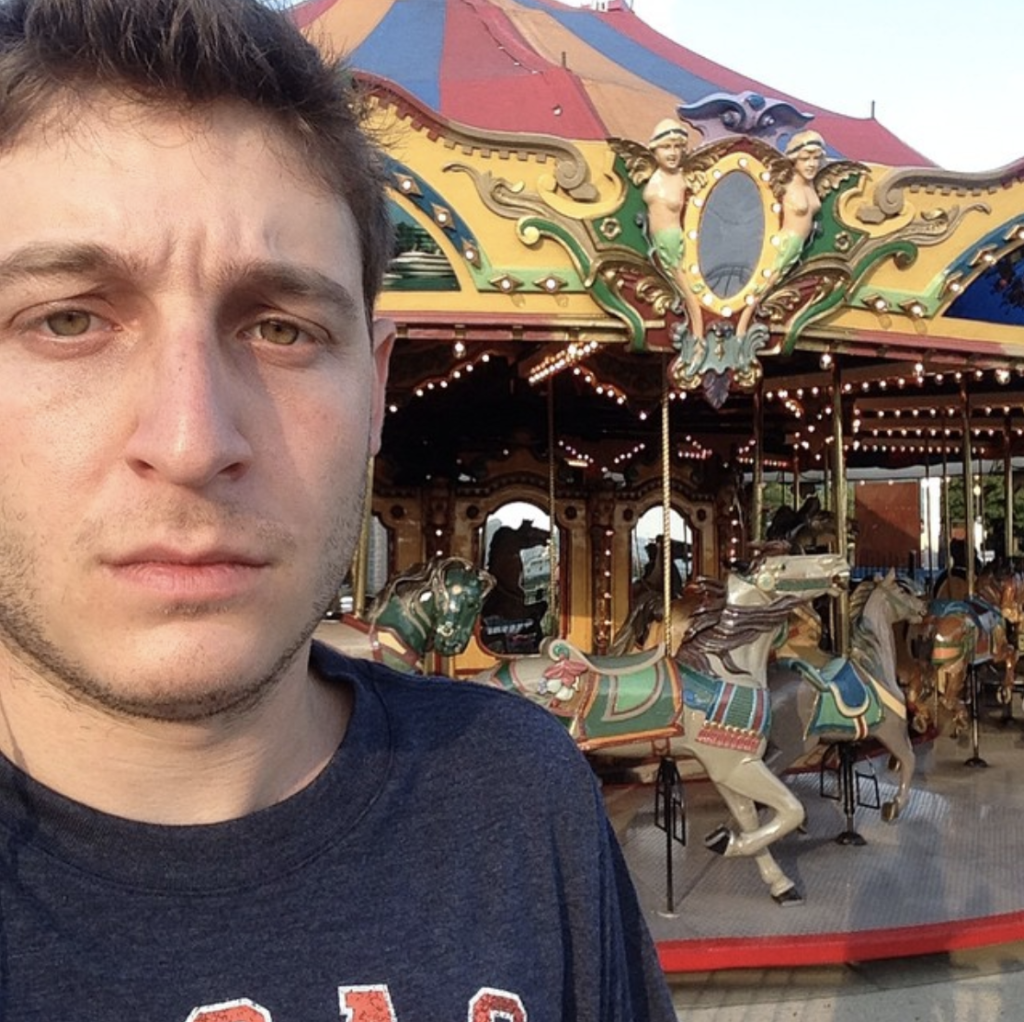
The good news is, I can see this being a movie. Not a huge movie. But a movie nonetheless. It’s got that marketing angle to it that does a lot of the work for you.
But the script needs a lot of work.
First, it violates one of the most important rules of screenwriting, which is to start the story as late as possible. “Chicago For One” spends the first ten pages painstakingly winding its way through a work plot that has nothing to do with the story.
This story needed Cam to get dumped so he could get to Chicago for the bachelor party ASAP and start the fun. Spending all this time inside a boring work subplot destroyed the beginning of the script.
I think sometimes we say to ourselves, “Well, we can’t just jump straight to the craziness.” You can’t have Alan, Stu, and Phil wake up from their crazy Vegas night on page 3. You need to use the first act to set them and the situation up first. But what if there isn’t much to set up? Do you set up anyway?
We could’ve easily had Cam dumped and set up that the rest of the bachelor party didn’t make it to Chicago by page 5. Probably even sooner. So if you’re not going to move things along, you gotta give us some story reasons why. And this script didn’t have that.
Also, work subplots are interesting because, on the one hand, you want to create context for your protagonist. You want to see that he has a real life so he feels real. However, it’s a case by case basis for whether to explore their work. In some movies it matters. In other movies it doesn’t.
For example, we don’t go into any relevant work subplots in The Hangover. So there was no need to get into minute detail about what they did and what the stakes were for them getting a promotion at work or what have you. However, in a movie like Pretty Woman where the whole point of the movie is that our main character needs a companion for the week while he puts a business deal together – that’s when you need to know something about the hero’s work.
You didn’t need to know anything about Cam’s work here. It’s not relevant to the story. And if you’re ever unsure about whether to include work stuff or not, put yourself in the mind of the audience. They’ve come here to see what kind of movie? In this case, a guy doing a bachelor party by himself. That’s not a concept that people want work life details on. They just want to see the fun stuff.
So why did it make the Black List, Carson?
These days, figuring out why something made the Black List is a lot like in the old days, trying to figure out why something sold. There’s always some behind-the-scenes details we’re not privy to. I remember when that totally bonkers script about the world blowing up that felt like it was written by a 3rd grader sold and everyone was wondering, HOW DID THAT SELL!? And it turned out to be Channing Tatum’s best friend and he made the studio buy the script before agreeing to star in another one of their movies.
I don’t think that’s the case here. It probably has something to do with the viral story being known and the script going out wide with a little buzz behind it because of that and the concept was memorable enough to get some votes. It’s a reminder that concept is king. It can make up for a lot of weaknesses.
So is there anything good here?
There were a few funny moments. Like when people recognized him. “Wait, wait, wait. You’re that guy. That… sad guy. Lonely guy.” Lol
And once it gets to him actually going out and doing things, it gets better. Because that’s what we came for.
And I liked the spirit of the story. It’s one of those feel-good movies, which is nice to see in a sea of scripts about sexism and racism and anger and super serious intense unhappiness. Chicago For One does a nice job reminding you that most people are good. That when someone’s having a bad day, people want to help, want to offer you an olive branch. That’s when Chicago For One was at its best.
I just don’t think the writer was ready to give this story the execution it required to deliver that feeling all the way through. There’s a lot of technical stuff that they need to improve on to make the story read seamlessly. With some guidance and a handful of rewrites, it could be a fun movie.
[ ] What the hell did I just read?
[x] wasn’t for me
[ ] worth the read
[ ] impressive
[ ] genius
What I learned: I’m going to say this as clearly as possible. You will never, in your life as a screenwriter, write something that you know is filler and get away with it. The reader will ALWAYS KNOW it’s filler. You can’t fool them. If there’s one thing readers and audiences are experts at, it’s recognizing when the script or movie is spinning its tires. There was so much in this first act that was unnecessary. It read like filler and forced the script into a difficult situation whereby it needed to save itself by the second act. Never write filler just to meet page markers. If you can get to the meat of the story before the end of the first act, on page 25, then get there. We don’t need to sit around for 15 extra pages just so you can meet some screenplay book’s requirement of when the first act is supposed to start.
What I learned 2: I do think these viral stories are good opportunities for savvy screenwriters to seek out. Zola was another recent one. Stuff that has gone viral is one more bullet in your marketing chamber for when you’re pitching something. It gives your script automatic cache, which results in interest from people around town. And, as we can see, the more places a script gets sent, the more people read it, which means the more people who can potentially vote it onto the Black List.

